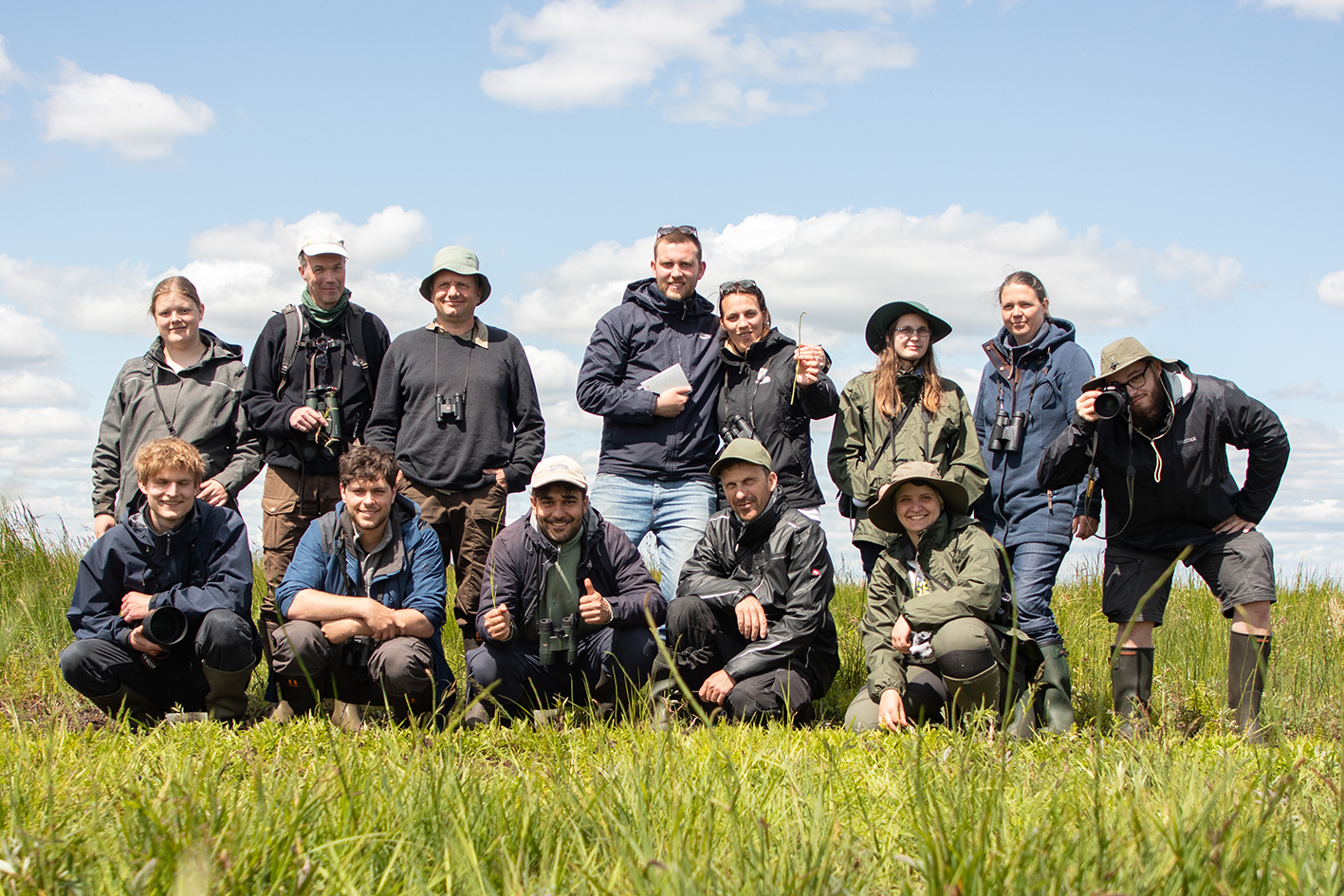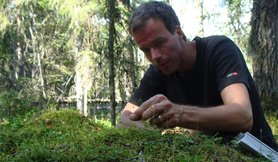
Ecology of the Biebrza floodplains in Poland
The Biebrza National Park is the largest national park in Poland and one of the most pristine floodplains in Central Europe. As part of the "Landscape Ecology Field Course" in the Environmental Monitoring degree programme, the participating students were able to observe and study the effect of near-natural flood dynamics and extensive land use on biodiversity.
The huge area of the Biebrza floodplain and the high heterogeneity at the landscape level result in a very high biodiversity and ensure the survival of species-rich communities. Thus, 130 bird species and more than 300 plant species (about 1/3 of the occurring species), including relict species of the ice ages (e.g. Polemonium caeruleum), could be detected during the field work.
“Together with the observations of Lesser Spotted Eagles, Moose and even a Wolf trotting through the sedge meadows, this left nothing to be desired. The eleven students of the Environmental Monitoring course were thus able to get to know a typical lowland floodplain landscape, which unfortunately no longer exists in Western Europe.”, sums up Professor Frank Dziock, leader of the field course.
"We were able to use the faculty's own field station, which is equipped with two large dormitories and a large kitchen, as well as places for plant and insect identification. The Gugny Field Station is located in the middle of the National Park. Thus, extensive experiencing and exploring of the floodplain (wearing rubber boots and a mosquito net on your head, of course) could start right outside the station. It was an incredibly enriching experience." is how one participant of the field course summed it up.
This was made possible by the cooperation with the University of Białystok (Faculty of Biology), which has been running since 2021. Professor Frank Dziock: “The Faculty LUC of HTW Dresden and the participants of the field trip would therefore like to express their sincere thanks to Dr Krzysztof Deoniziak, Dr Paweł Mirski, Prof. Mirosław Ratkiewicz and Prof. Jan Taylor from the Faculty of Biology at the University of Białystok, who made our field course possible through a wide range of organisational work, suggestions for field trip destinations, the provision of the "Gugny Field Station" and lectures as well as the provision of literature.” The cooperation is financially supported by the ERASMUS programme.
News release University of Białystok
Contact
Prof. Dr. rer. nat. Frank Dziock
Dean of study affairs BSc "Umweltmonitoring"
- PW 102
- +49 351 462 3830

Diplom-Biologe Mike Hölzel
- P1 012
- +49 351 462 3595


